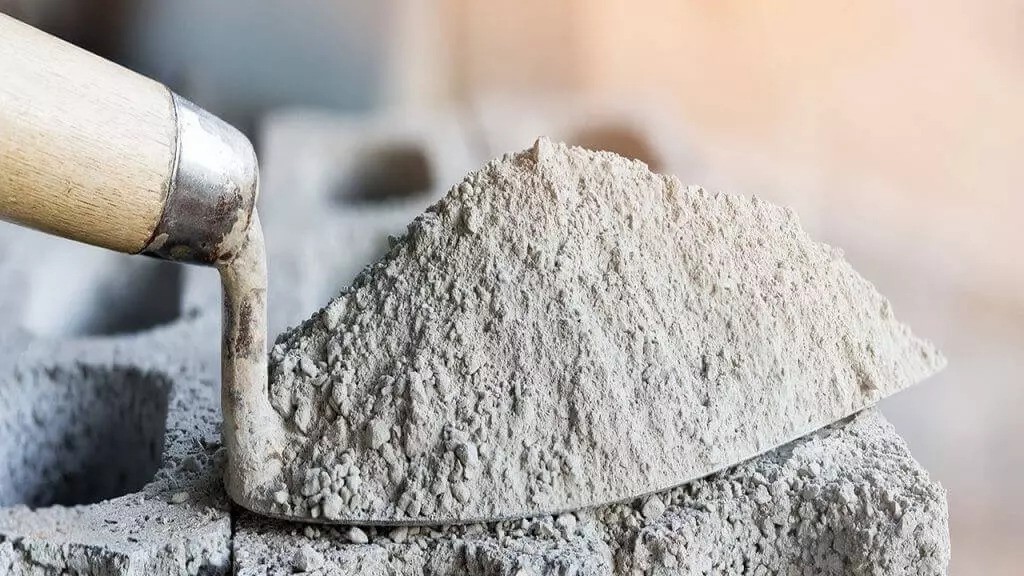Cement is one of the most widely used and consumed construction materials in the implementation of all civil and infrastructure projects. Various types of cement are utilized in diverse forms such as concrete, exterior building facades, wall coatings, and structural floorings. It is employed in constructing columns, foundations, and for enhancing the safety and strength of structures.
Iran is one of the largest producers and exporters of cement globally, boasting 75 cement factories with a production capacity exceeding 80 million tons annually. The produced types of cement in Iran include:
- Portland Cement: This type of cement comprises five types, namely Type 1 – Ordinary Portland Cement, Type 2 – Modified Portland Cement, Type 3 – Quick Setting Portland Cement, Type 4 – Low Heat Portland Cement, and Type 5 – Sulfate-Resisting Portland Cement.
- Blended Portland Cement: This category includes four types, namely Type IP – Pozzolanic Portland Cement, Type IS – Slag Portland Cement, Type I(PM) – Blended Pozzolanic Portland Cement, and Type I(SM) – Blended Slag Portland Cement.
- White Cement: This cement type has a white color and is used for decorative and ornamental purposes.
- Rapid-Setting Cement: This type of cement has a setting time of less than 15 minutes, making it suitable for tasks requiring speed and rapid execution, such as emergency repairs and formwork construction.
- Pozzolanic Cement: This cement type has high sulfate resistance and low heat generation, making it suitable for projects requiring high volume and temperature control, such as constructing concrete dams, marine structures, and specialized concrete.
The price of cement can vary based on various factors such as type, quality, packaging, transportation, demand and supply, sanctions, and exchange rates. According to some reports, the average price of cement in the global market was around $100 per ton in 2023. However, this price may differ for different countries and based on various types and packaging. Some examples of cement prices in different countries and based on different types and packaging in 2023 are as follows:
- Bulk Type 1 Portland Cement price in Iran in 2023 was around $50 per ton.
- Bagged Type 2 Portland Cement price in Russia in 2023 was around $100 per ton.
- Jumbo Type 3 Portland Cement price in China in 2023 was around $80 per ton.
- Flexi Tank Type 4 Portland Cement price in India in 2023 was around $120 per ton.
- Bagged Type 5 Portland Cement price in Turkey in 2023 was around $150 per ton.
All types of cement produced in Iran, including Portland Cement, White Cement, Rapid-Setting Cement, and Pozzolanic Cement, are available in the domestic market.
Do you need updated prices?
Cement for export to different countries can be packaged using various methods. Some common packaging types for cement include:
- Bulk Packaging: In this method, cement is shipped without any packaging, directly in bulk form from the factory and transported by truck, train, ship, or airplane. This method is suitable for industrial and bulk applications, reducing transportation and packaging costs.
- Bag Packaging: Cement is packaged in bags of 25 or 50 kilograms made of materials such as paper, plastic, or fabric. This method is suitable for retail and end consumer use, providing protection against moisture and contamination.
- Jumbo Packaging: Cement is packed in large and durable bags with a capacity of 1 ton or more. This method is suitable for medium and industrial use, protecting cement against moisture and contamination. These bags can be made of plastic, fabric, or polypropylene.
- Flexi Tank Packaging: Cement is packed in plastic bags with a capacity of 15 tons or more. This method is suitable for bulk and maritime exports, protecting cement against moisture and contamination. These bags are placed inside standard 20 or 40-foot containers.
For exporting cement to Russia, consider the following:
- Russia is one of the largest cement importers globally, and its market is competitive. Therefore, managing the price, quality, and delivery time of your cement is crucial.
- To export cement to Russia, you must obtain the necessary documents and licenses. Some of these documents include:
- Export contract between the exporter (seller) and the Russian buyer approved by a Russian bank.
- Certificate of origin of the goods.
- A program specifying the weight of the contract and the number of packages for each shipment.
- The original delivery-receiving company’s license with a computer code from the Russian customs.
- Health certificate for Russia’s domestic use.
To choose the appropriate type of cement for export to Russia, consider the climatic conditions, type of structure, and the buyer’s required standards. In general, cements with high sulfate resistance, low heat, and rapid setting are suitable for cold climates and large-volume concrete casting. Additionally, cements with specific colors and properties can be used for aesthetic and decorative applications.

